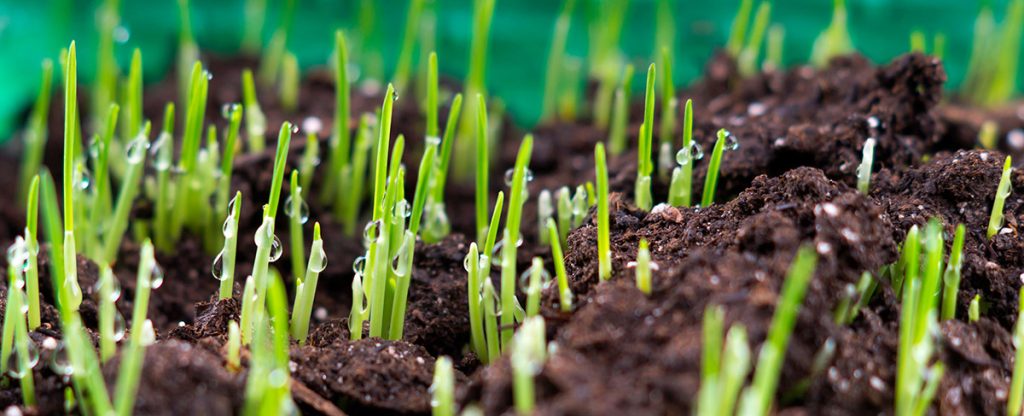
When deciding which plant species to grow on your land for conservation, grass crops are an option that should not be overlooked. While trees, wildflowers, and legumes can all be used as cover crops, grass is relatively inexpensive, readily available, and easy to grow.
Utilizing grass crops for preservation and agricultural purposes can also provide useful benefits to your land. With grass crops, you can protect vulnerable soil from erosion, preserve water quality levels, and establish sustainable wildlife habitats.
Reduced soil erosion
Agricultural practices and human interference across the globe have led to high levels of soil erosion. Damaging practices including deforestation, overgrazing, and the use of pesticides and other chemicals cause major erosion, as well as topsoil and nutrient loss. Strong winds and heavy rains also contribute to significant amounts of soil reduction. This creates a major threat to our food supply and could have disastrous consequences for our planet.
Plants are a natural solution to soil erosion. They help to bind the soil and act as barriers against harmful weather events. Grass in particular is an optimal plant for erosion control. Its deep, fibrous roots grow quickly and work efficiently to keep soil in place. In addition, its durable structure allows it to hold up well against damaging wind, rain, and snow.
Grass also contributes to carbon sequestration. It adds more organic carbon to the soil than other types of plants and can help retain this carbon and other beneficial nutrients in the soil. This also prevents carbon from leaking into the atmosphere and contributing to climate change.
Improved water quality
Various agricultural practices, like fertilizer usage and chemical sprays, can have damaging effects on waterways. Nitrate runoff, pesticide runoff, and other runoff types caused by agricultural practices can be severely detrimental to our water supply. These harmful substances cause water pollution and bacteria growth that can be dangerous for humans and animals, such as algal blooms and pesticides.
By planting grass crops on your land, you can reduce runoff and further contamination. Native grass crops can readily absorb nitrogen, nitrate, phosphorus, and other nutrients found in fertilizers, preventing them from entering waterways.
Additionally, due to their deep root system, grasses allow water to thoroughly infiltrate the ground and decrease runoff. Cover crops like grasses have been shown to reduce nutrient and pesticide runoff by more than 50 percent. Grass crops also help reduce water loss from the soil, which adds to the soil’s overall health.
Better wildlife habitats
Grasslands are some of the largest, most biodiverse ecosystems in the world. Native warm-season grasses once covered the majority of North America and housed over 800 native animal and plant species. Today, due to modern agricultural practices and human interference, only 10 percent of tallgrass prairie and 30 percent of shortgrass remain. This loss of grassland has led to habitat deprivation for many species that depend on grass to survive.
Grass crops, especially native warm-season grass, are ideal for providing habitat to many species of wildlife. They offer food, shelter, and space for different species to grow. Rabbits, turkeys, pheasants, and many other birds and small mammals thrive on grassland.
Due to its short but stable attributes, grass allows ground species to move easily through the terrain while providing overhead cover to protect them from the elements and dangerous predators. Furthermore, grassland can be used for nesting purposes for many animals. Planting grass crops allows wildlife to reproduce and flourish effectively, protecting vulnerable species from extinction.
Economic benefits
Growing grass crops is a simple, inexpensive way to add protective cover to your land. Its wide availability and low cost make it an ideal option for preserving your soil and water supply. Because it only needs occasional mowing, the cost of maintenance is low. For these reasons, grass crops are an excellent choice for planting on your farm.
If you’re looking to begin planting grass crops on your land, All Native Seed has you covered. Our NCRS compliant seed mixes contain native grass seeds to help you establish a lush grass crop that benefits your land. Not sure which type of grass is best suited to your needs? Reach out to All Native Seed for a consultation today.
